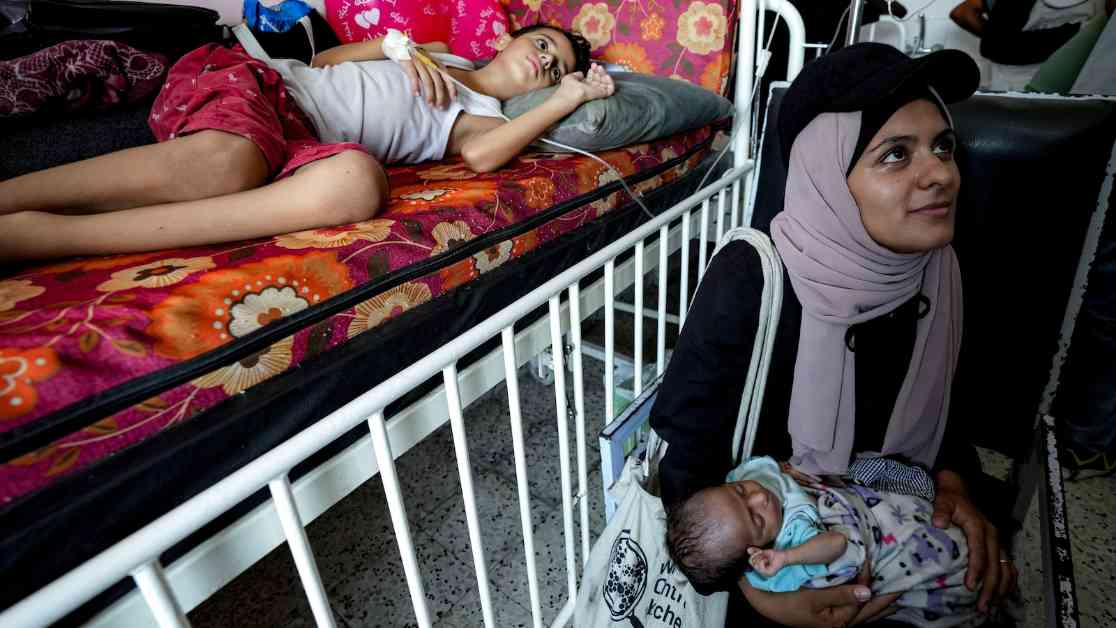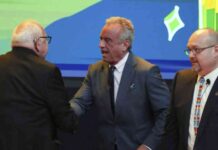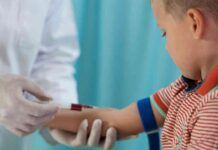**Polio Vaccinations Launched in Gaza After First Case in 25 Years**
In a concerted effort to prevent an outbreak of polio in the Gaza Strip, Palestinian health authorities and United Nations agencies have initiated a large-scale vaccination campaign targeting children in the war-torn territory. This campaign comes on the heels of Gaza’s first polio case in 25 years, a sobering reminder of the challenges faced by the population in the midst of conflict.
**The Urgent Vaccination Drive**
The vaccination campaign kicked off in the central Gaza Strip and is set to expand to the more severely affected northern and southern regions. With the aim of reaching approximately 640,000 children, the authorities are working tirelessly to ensure widespread coverage. The World Health Organization has noted that Israel has granted limited pauses in the fighting to facilitate the vaccination efforts.
Despite the challenges posed by ongoing conflict and destroyed infrastructure, over 72,600 children received vaccines on the first day of the campaign. This crucial initiative is a race against time to prevent further cases of polio and safeguard the health of Gaza’s vulnerable population.
**Challenges and Concerns**
The recent polio case in Gaza, affecting a 10-month-old boy who is now paralyzed, serves as a grim reminder of the potential risks posed by the disease. The World Health Organization has cautioned that the presence of a paralysis case indicates the possibility of hundreds more individuals being infected but asymptomatic.
Polio, a highly contagious viral infection, can lead to paralysis and even death in severe cases. As Gaza grapples with the aftermath of the conflict, including displaced populations and destroyed infrastructure, the risk of disease outbreaks looms large. Health officials are particularly concerned about uncollected garbage, contaminated water, and malnutrition exacerbating the already precarious health situation in the territory.
**A Call for Ceasefire and Cooperation**
Amidst the chaos and devastation in Gaza, the United Nations children’s agency has called for a temporary truce to allow families safe access to health facilities. The vaccination campaign is just one step towards addressing the broader health challenges facing children in Gaza, including malnutrition and poor living conditions.
Ammar Ammar, a spokesperson for the U.N. children’s agency, emphasized the urgent need for cooperation from all parties involved. He stressed that a ceasefire is essential to address not only the immediate threat of polio but also the broader health and humanitarian crisis unfolding in Gaza.
**Logistics of the Vaccination Campaign**
The vaccination drive will be conducted at approximately 160 sites across Gaza, including medical centers and schools. Children under the age of 10 will receive two doses of oral polio vaccine, with the second dose scheduled four weeks after the initial vaccination. Israel has permitted the delivery of over 1.3 million doses of the vaccine to Gaza, with an additional shipment of 400,000 doses on the way.
The polio virus responsible for the recent outbreak in Gaza is believed to be a mutated strain originating from the oral polio vaccine. While the vaccine is generally safe and effective, there is a rare risk of the weakened live virus evolving into a new, potentially dangerous form. This underscores the importance of maintaining high vaccination coverage to prevent the spread of polio.
**The Human Cost of Conflict**
The war in Gaza has taken a devastating toll on the population, with thousands of lives lost and widespread destruction across the territory. Both Israeli airstrikes and Hamas-led militant attacks have resulted in civilian casualties and massive displacement. The Health Ministry in Gaza reports over 40,000 Palestinians killed during the conflict, though the breakdown of fighters versus civilians is not specified.
The ongoing conflict has left entire neighborhoods in ruins and critical infrastructure in shambles. The humanitarian crisis in Gaza is further exacerbated by the lack of access to basic necessities, including clean water, food, and medical care. The international community has been working to broker a ceasefire and facilitate the release of hostages, but progress has been slow and fraught with challenges.
**Looking Ahead**
As the vaccination campaign gains momentum in Gaza, there is a glimmer of hope amidst the devastation. The concerted efforts of health authorities, international agencies, and frontline workers are crucial in protecting the most vulnerable members of the population. However, the challenges posed by ongoing conflict, limited resources, and damaged infrastructure underscore the urgent need for sustainable solutions to address the broader health crisis in Gaza.
The fight against polio in Gaza is not just a medical challenge but also a testament to the resilience and determination of the people living in the territory. The success of the vaccination campaign hinges on continued cooperation, support, and resources to ensure that every child in Gaza receives the protection they need against this preventable disease.


















